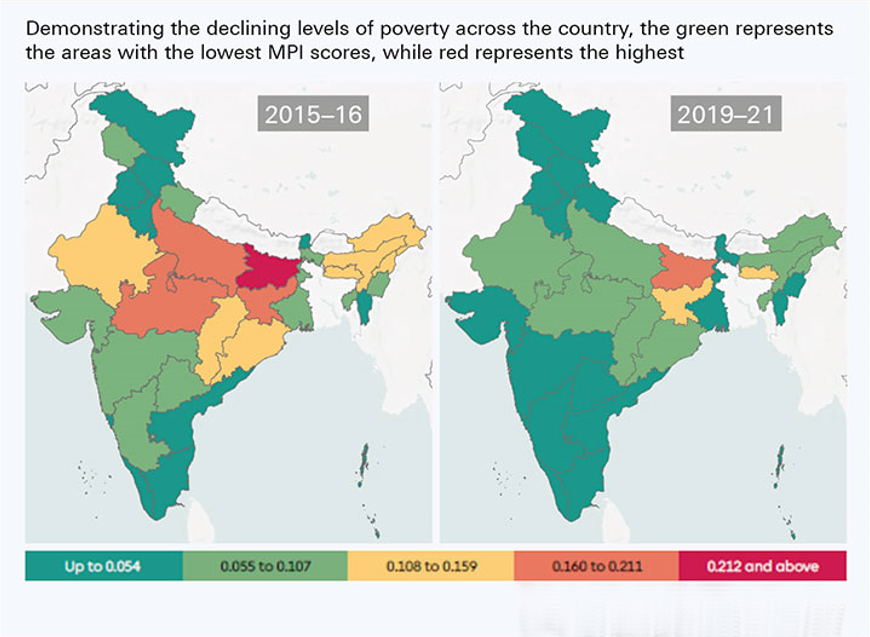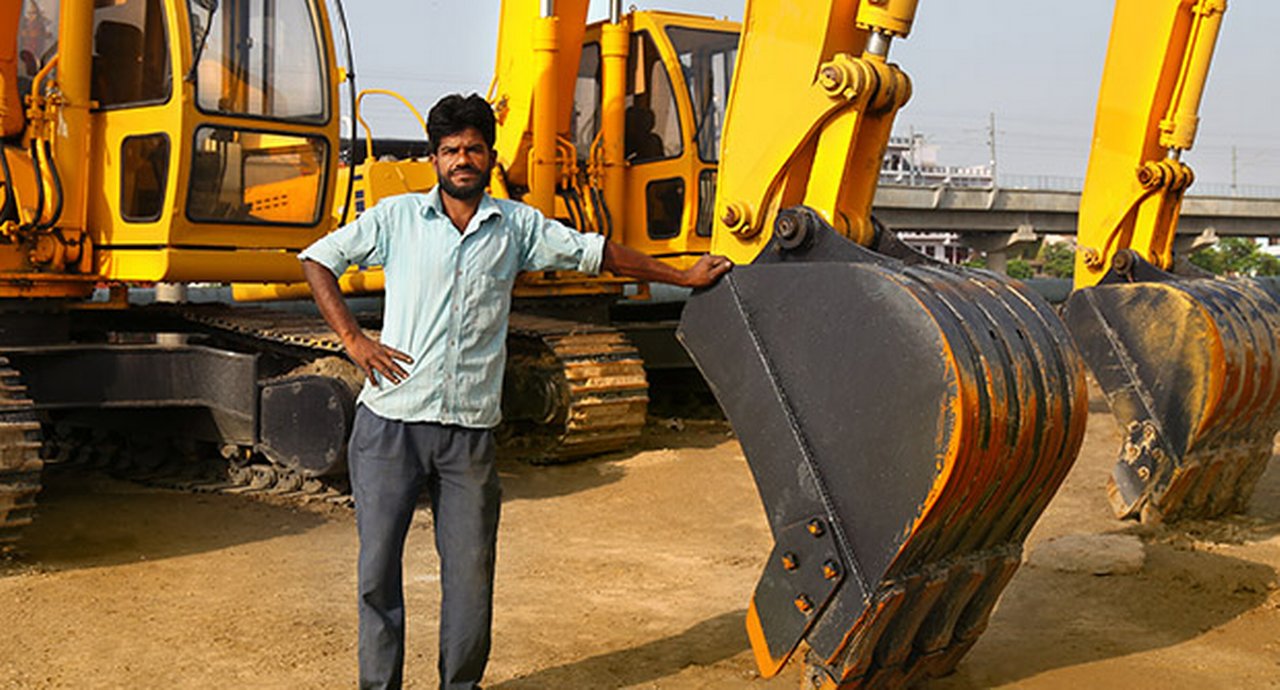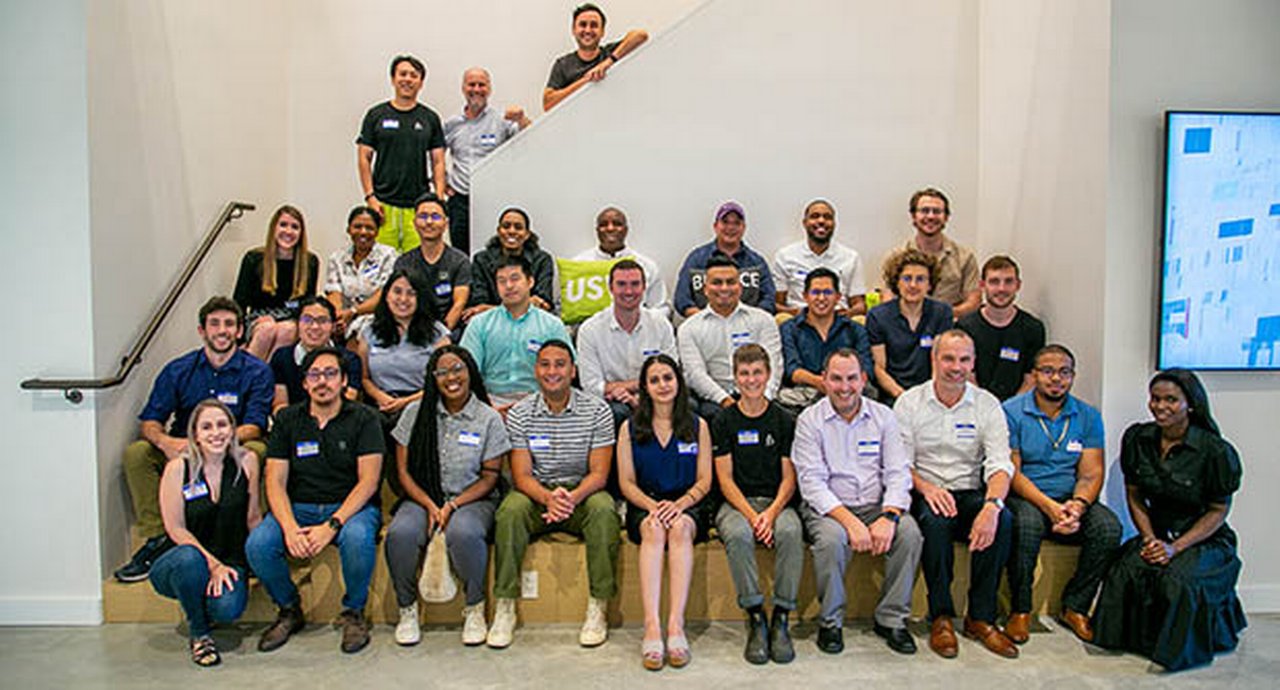21 August 2024
With Corporate Social Responsibility (CSR) growing in importance globally, flow explores an initiative that is supporting women from low-income backgrounds in India – where CSR has been a priority for the past 10 years
MINUTES min read
Over the past decade there has been a significant uptick in CSR activities across India. This comes after the country introduced the world’s first governmental CSR mandate, in April 2014, requiring companies to allocate at least 2% of their net profit to CSR initiatives.1
Coming into force at a time when the World Bank reported that 248 million Indians were living in poverty – spending less than US$2.15 a day2 – this legislation has driven a wave of development in the country, fostering partnerships between the private sector, government agencies, charities and local communities.
As a result of the growing emphasis placed on CSR initiatives – like improving access to and quality of education, training, healthcare, nutrition, sanitation and safety – there have been record reductions in poverty levels. A 2023 report by the United Nations Development Programme (UNDP) and NITI Aayog, an Indian government think tank, found that nearly 135 million people had moved out of poverty between 2015 and 2021, with the National Institution for Transforming India’s (NITI) Multidimensional Poverty Index (MPI) reducing from 24.85% of the population to 14.96% over the same period. This puts India on track to achieve its Sustainable Development Goal (SDG) of reducing poverty by at least half by 2030.3

Figure 1: An illustration of India's National Multidimensional Poverty Index (MPI) scores
Source: 2023 report by the UNDP and NITI Aayog
With significant progress being made – but much work remaining – flow explores a successful CSR initiative that is being rolled out in India, and its impact on two of the communities targeted.
The Mahila SEWA Trust
To help communities become more resilient and prepared for the future, Deutsche Bank focuses on two key areas: education and the environment. “We support education initiatives that help people advance their competencies and skills, and we aim to restore and protect local environments,” says Melanie de Cruz, Head of CSR, APAC at Deutsche Bank. “Additionally, we provide basic needs that address pressing concerns in each region and offer relief in emergencies.”
One of Deutsche Bank’s CSR partners in India is a non-profit organisation known as the Self-Employed Women’s Association (SEWA). Set up in 1972, it supports women workers from the informal economy through empowerment, community improvement and poverty alleviation.
Most of the women workers are small and marginal farmers and landless agricultural labourers by profession, and they often do not get employment opportunities. These women need to upgrade their skills to improve their production quality and increase their management skills in understanding supply chain structure, financial literacy, sales and marketing – all of which is provided by SEWA through its interventions, as follows:
- Full employment. Providing work security, income security, food security and social security, which includes healthcare, childcare, insurance, pension and housing at the household level
- Self-reliance. Enabling them to work individually and collectively to achieve economic freedom and retain decision-making power over issues affecting their lives and livelihoods
“The programme we support equips these women with essential skills such as basic accounting, computer proficiency, marketing, communication, financial literacy and leveraging information technology. Skills that will help them to set up co-operatives within the non-profit, where members themselves are owners and managers of their own enterprise,” explains Ruchi Khemka, Head of Corporate Social Responsibility for Deutsche Bank Group in India. These women, who come from very low-income backgrounds, often face many constraints and limitations, imposed on them by society. “This comprehensive skills training programme empowers the women, leading to financial and food security, asset ownership and economic freedom,” she adds.
Over time, the organisation has grown to include more than 110 active co-operatives and over 2.9 million women as members across 18 states in India, providing each member with a decent livelihood, upgrading their capacities and developing them as entrepreneurs.
The Kamla project and its impacts
Nutritious foods are not commonplace in low-income areas due to the growing availability of cheaper processed food, despite its negative impact on the health of families. A standout project looking to address this issue – run by SEWA and supported by Deutsche Bank – is the Kamla co-operative, which aims to support women from low-income areas in training as home chefs and provides them with opportunities to sell their products.
In 2021, Deutsche Bank supported the initial set-up, investing in the ‘Kamla on Wheels’ project, which enabled 120 women – having been trained to create a variety of healthy and nutritious dishes – to use carts and stalls to go to neighbouring areas to sell their products to a larger customer base.
Following the success of the initiative, the project was expanded to six cafés. The Kamla sisters – as the members of Kamla are known – underwent comprehensive training, equipping them not just with the skills needed to cook healthy meals, but also essential capacity-building skills in food quality standards, store management and basic accounting.
“Applying these learnings has significantly elevated my family’s economic status”
The Kamla cafés are now self-sustaining and have generated a turnover of €250,000 to date. As stakeholders in the co-operative, the Kamla sisters receive a share of the profits in addition to their daily pay – and are involved in making decisions on the future of the café.
“The impact has been profound,” said Farzana Irfan Vora, a 32-year-old woman residing in the village of Chaklasi who was raised by her uncle and aunt after her mother’s death when she was eight years old. “Applying these learnings has significantly elevated my family’s economic status. I can now afford nutritious and healthy meals and decent clothing, and can witness an improvement in our overall health.”
Before joining SEWA, Farzana was packing 25kg bags of papadum (a savoury Indian snack) and earning INR30–40 per day (approx. €0.30–0.40). “It was difficult for us to manage household expenses,” the mother of three children and one adopted daughter says. “My husband’s livelihood revolves around a plastic cutlery stall, a venture that required him to travel from one village to another. Unfortunately, the income generated was insufficient to meet our household expenses, leaving us in a perpetual struggle.”
After joining SEWA, Farzana now makes a monthly income of INR9,500 to INR10,500, contributing 60% of the family’s income. “Previously enrolled in a government school, my children now attend a private institution, receiving an enhanced quality of education.”
Given the popularity of the cafés, in 2024 Deutsche Bank will fund an expansion of the current bakery and set up a new central facility and café, supporting the training of an additional 800 women.
“This is more than just a job for these women. They are fulfilled and empowered in their roles – and then continue to reinvest profits into the project so that more generations of women can share the benefits. The great thing about this is that it benefits the whole community: the income of families increases, and they can invest their money towards healthcare and their children’s education,” says Deutsche Bank’s Khemka.
“Upskilling women not only empowers them with knowledge and resources to secure a livelihood, but also fosters economic growth and social progress,” she adds. “Together with our NGO partners, we can create a multiplier effect of positive change in communities.”



